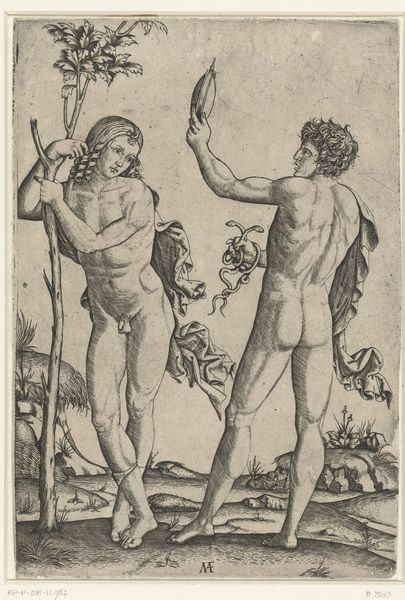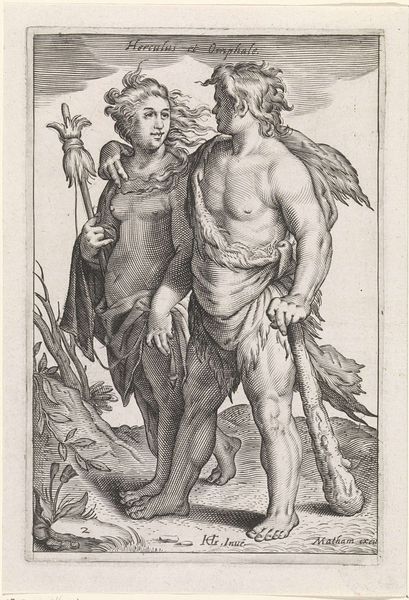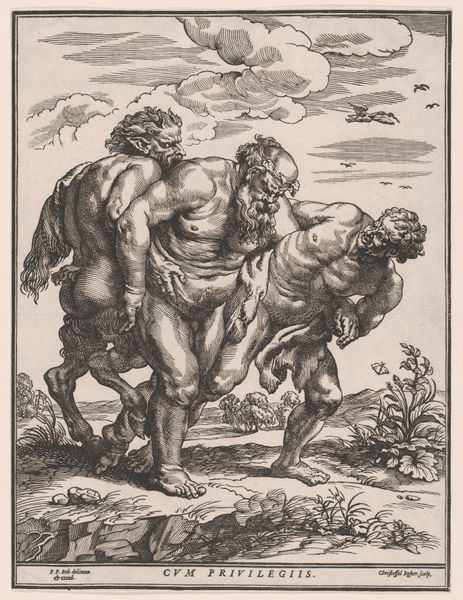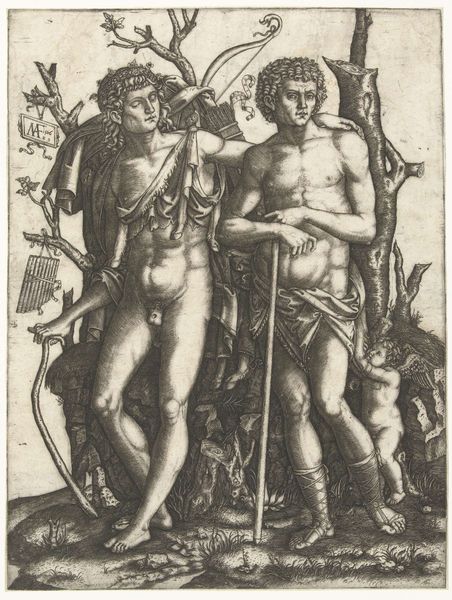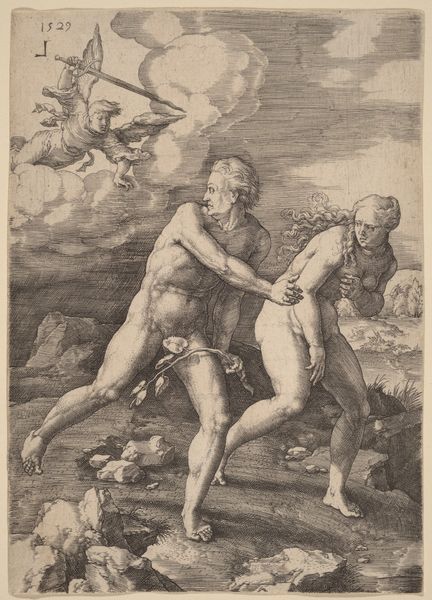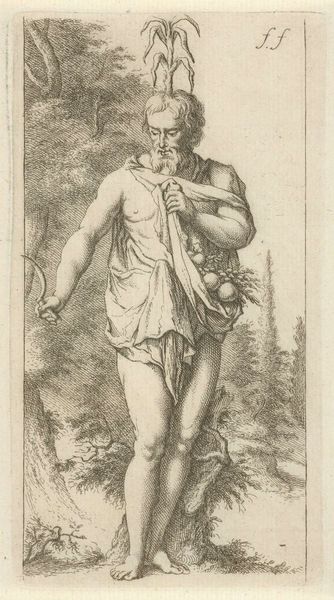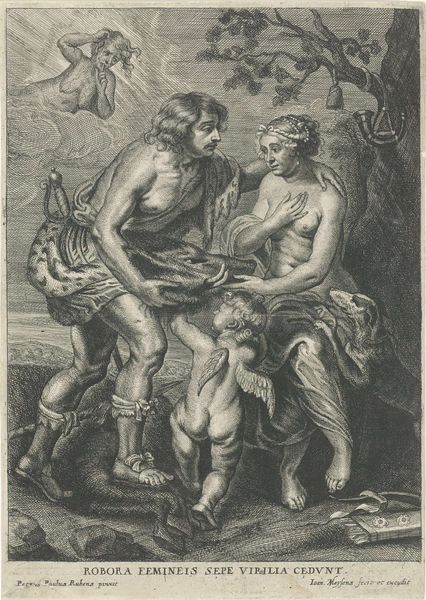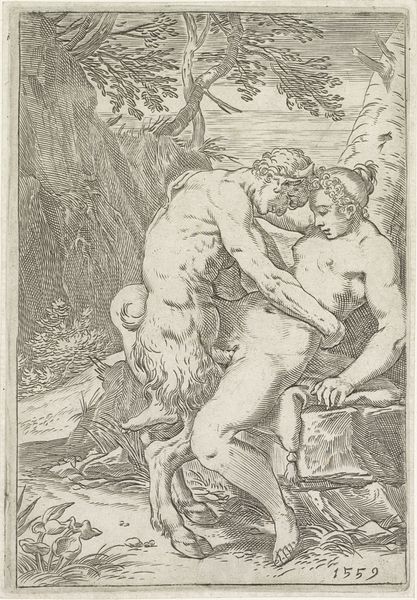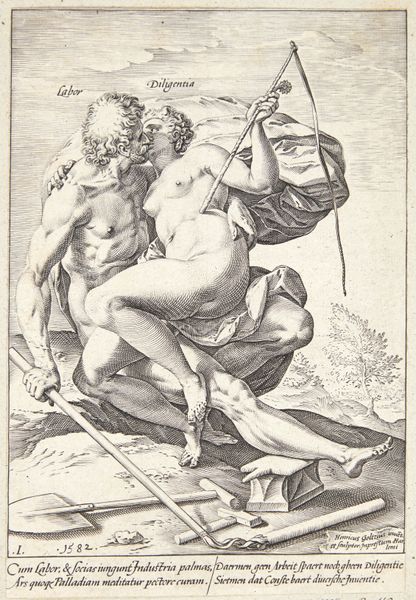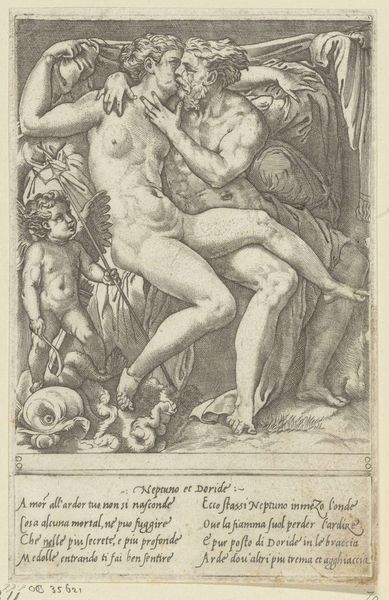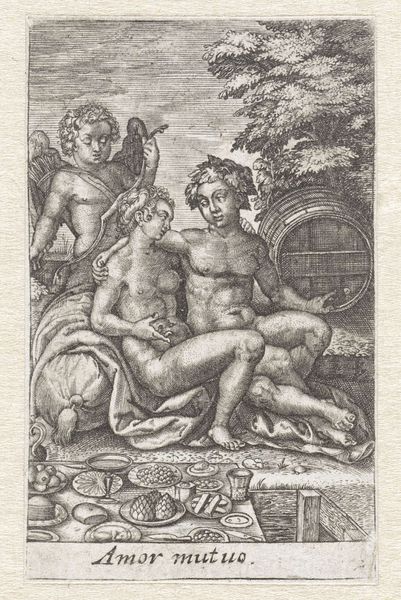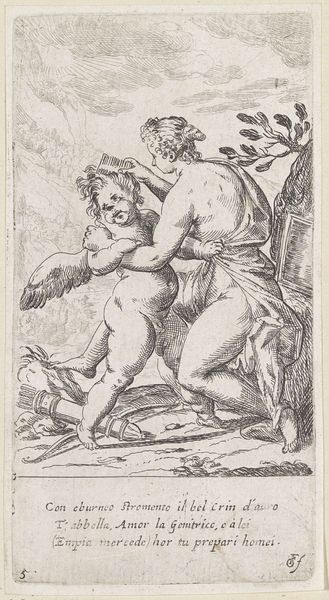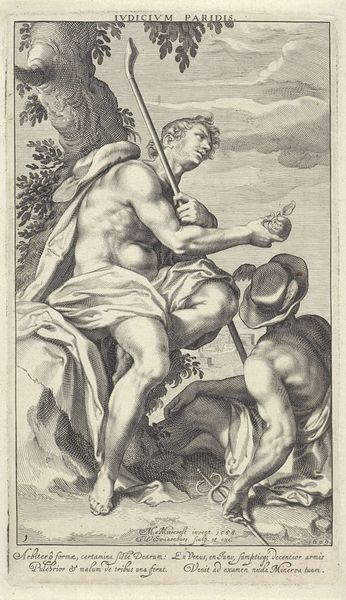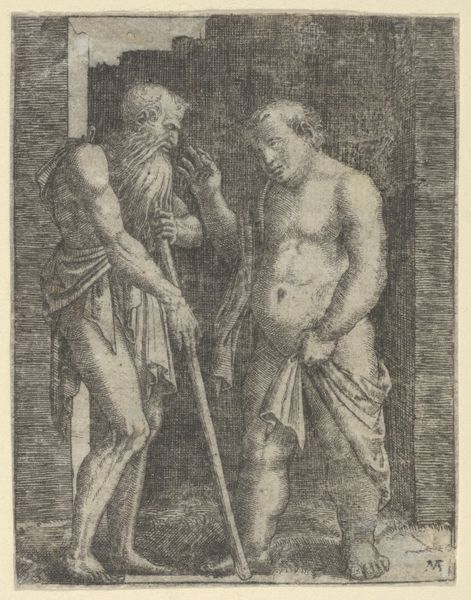
engraving
#
baroque
#
figuration
#
history-painting
#
engraving
Dimensions: height 180 mm, width 120 mm
Copyright: Rijks Museum: Open Domain
Editor: This engraving, "Vertumnus en Pomona," crafted somewhere between 1581 and 1631 by Jacob Matham, feels… intriguing. The figures seem monumental, even a tad comical with their slightly awkward stances and bulging muscles. How do you see this piece? Curator: Intriguing is a great word for it! You've picked up on something crucial about the Baroque—this glorification of the human form. But look closer—this isn't just about beefcake; it’s about transformation, courtship, and the sheer audacity of love disguised. Vertumnus, the Roman god of seasons, has wooed Pomona, goddess of fruitful abundance, through trickery and disguise! The narrative! Do you think the artist has depicted that seduction well? Editor: The…trickery? I suppose the contrast between their physiques suggests some kind of power dynamic, perhaps Vertumnus’ disguise and a symbolic weight he carries within himself? But it's not obvious that it’s a ruse; they're simply there. Curator: That’s part of the baroque charm, isn't it? This slyness of seduction. Think of it as the dawn of Photoshop—crafting appearances is the whole game. But beyond narrative, look at the *line*—isn’t it something else? Matham could make copper sing. The density and tonal value produced by such line work is incredibly exciting and full of creative agency! Editor: You're right, there's such depth created by the density of the lines. I can really appreciate this medium with your unique perspective. It gives a great impression, despite being black and white. Curator: Exactly! An agency by itself! Glad I can share that sense of enjoyment with you! It is often within a more humble approach to artwork appreciation we find unexpected results. Editor: Absolutely. I'll be thinking differently about this piece from now on!
Comments
No comments
Be the first to comment and join the conversation on the ultimate creative platform.
